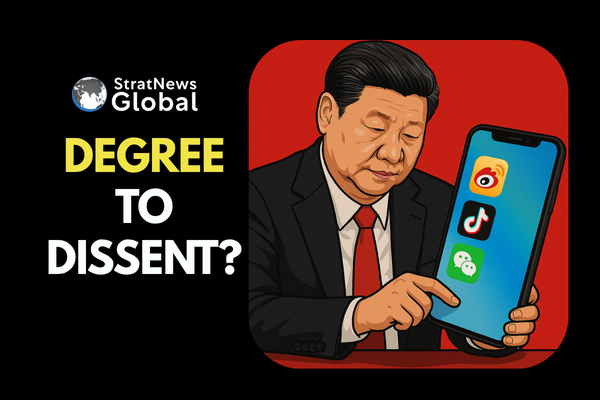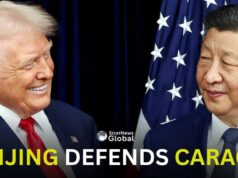Not for the first time, China’s online community is up in arms over what it sees as government efforts to control or tame the net. This time its over a government directive issued on the weekend which requires all content creators and influencers to hold relevant degrees or professional licences.
Under the new policy, any content creator or influencer who discusses “serious topics” such as health, medicine, law, education or finance must hold a relevant university degree or professional licence. Platforms including Douyin (China’s TikTok equivalent), Weibo, and Bilibili are now required to verify these credentials before allowing users to publish expert commentary. Violators could face fines of up to 100,000 yuan (approximately $14,000), account suspensions, or permanent bans.
Beijing says the move is necessary to ensure online discourse remains accurate and professional. It would curb misinformation spreading through social media, particularly in sensitive sectors where unqualified advice could lead to harm. The regulation also includes provisions to label AI-generated content and requires influencers to disclose when they are offering professional opinions.
Chinese authorities argue that the country’s influencer economy has become too vast and powerful to operate without oversight. They cite a growing tide of inaccurate or misleading content on subjects such as finance, health, and education, often shared by creators lacking formal expertise.
To address this, Beijing has introduced what it terms “influencer credentialisation” , a system that requires influencers to prove their qualifications before commenting on specialised issues.
Public Backlash, Online Outrage
The backlash was quick in coming. On platforms like Weibo, hashtags such as #NoDegreeNoDiscussion trended briefly before being swiftly censored. Many users expressed frustration that the rule effectively excludes millions of ordinary voices from public debate, allowing only those with formal qualifications and often state-approved credentials to discuss meaningful issues.
Critics have called the regulation a new form of digital gatekeeping that will silence self-taught experts, independent commentators, and grassroots activists. Some users have even likened it to a modern-day censorship mechanism, one that hides behind the guise of professional regulation. A Weibo user wrote before their post was deleted, “This isn’t about protecting citizens; it’s about silencing them.”
Similar sentiments have flooded Reddit and X (formerly Twitter), where international observers described the rule as another step in Beijing’s long campaign to consolidate control over online expression.
The ambiguity of the new regulation has also raised concern. It does not clearly define what qualifies as a “relevant” degree or specify how foreign or online qualifications will be treated.
Social media platforms, now tasked with verifying influencer credentials, face mounting pressure and the risk of financial penalties for non-compliance. This could lead to over-censorship, with platforms erring on the side of caution by removing even legitimate content.
Analysts see the new rule as part of China’s wider effort to tighten control over the digital space, following earlier bans on “negative emotions” and stricter limits on livestreaming. Together, these measures aim to manage online narratives and curb dissent, ensuring state-approved voices dominate public debate.
Globally, the policy has reignited discussion on how far regulation should go. Supporters say credential checks could improve accountability, while critics warn it could turn free expression into a privilege for the educated elite. For China’s influencers, the message is clear prove your credentials or stay silent.
Research Associate at StratNewsGlobal, A keen observer of #China and Foreign Affairs. Writer, Weibo Trends, Analyst.
Twitter: @resham_sng





